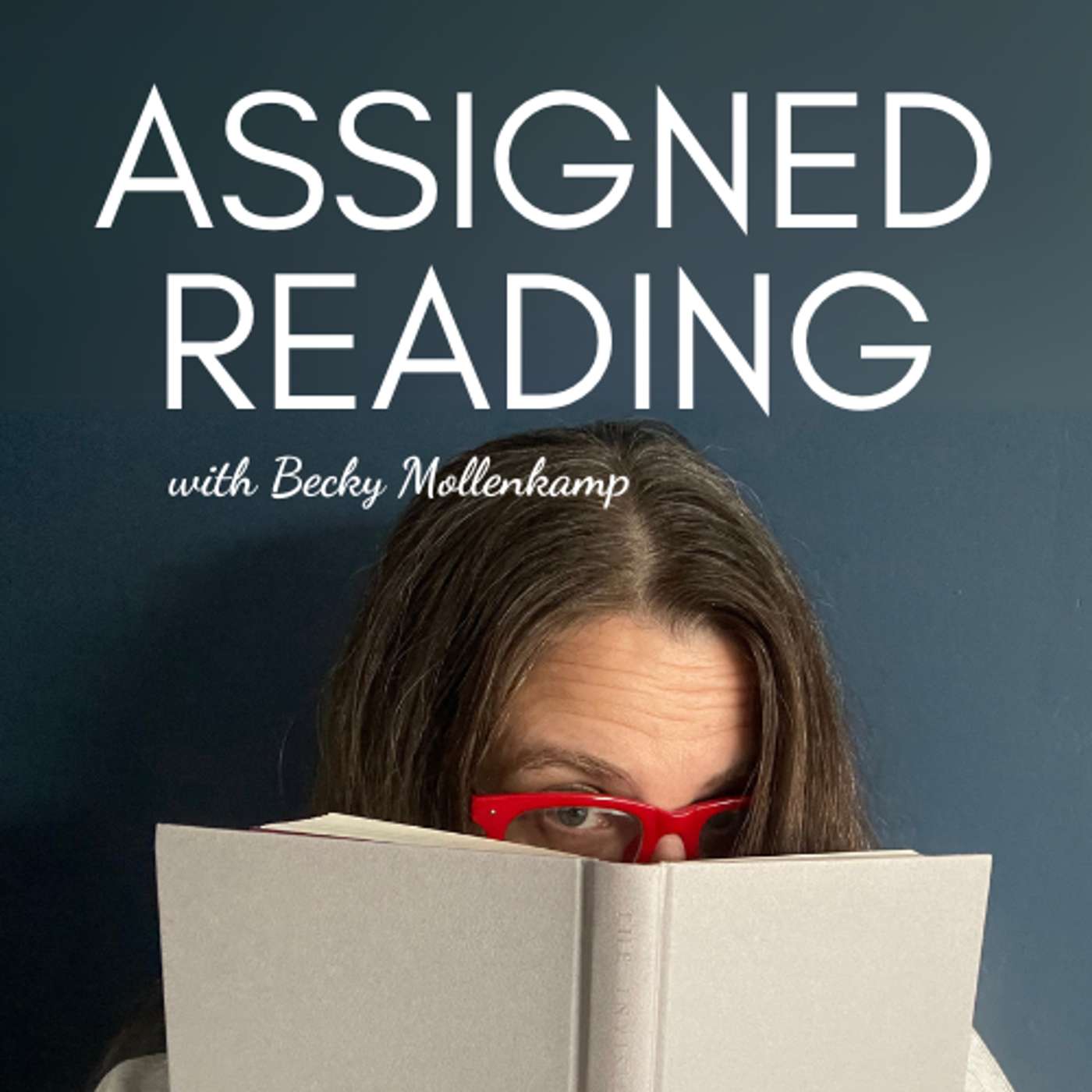
Mindset Unlimited: Tips, Tools, and Inspiration for Women in a Time of Change
Your Mindset Unlimited is a podcast for women navigating professional and life transitions who are seeking to release learned limitations and build a more holistic, liberatory version of success.
Your Host, Valerie Friedlander, is an ICF certified coach, sociologist, intersectional feminist, artist, business owner, and mom. Based in Chicago and supporting clients world-wide, she helps high-achieving women transition into their next chapter of life with clarity, confidence, and self-compassion. lead with intention, and create their definition of success that honors all aspects of their life.
In this podcast you'll find tips, tools, and inspiration to help you release the internalized limitations cultivated by our social system imbalances and lead your life with more ease and joy.
Some of the topics you'll find here are: finding fulfillment, habit shifting, motivation, time management, money mindset, stress management, impostor syndrome, productivity, work/life balance, communication, boundaries, leadership, social activism, burnout, building a business, motherhood, and more.
You can find out about Valerie and her work at www.valeriefriedlander.com
Follow her on most social media @unlimitedcoachval
Sign up for her email list at www.valeriefriedlander.com/signup
Books referenced on the podcast can be found on Bookshop.org
https://bookshop.org/lists/unlimited-podcast-book-recommendations
Mindset Unlimited: Tips, Tools, and Inspiration for Women in a Time of Change
Clarifying What You Want
Use Left/Right to seek, Home/End to jump to start or end. Hold shift to jump forward or backward.
Clarifying what you want can be overwhelming, especially when you’re stressed out where you are now. Gaining clarity is something a lot of clients initially come to me for help with. It’s one thing to recognize that you don’t like the way things are. That’s a helpful first step. Next, you want to find what you DO want, which is much harder because there are so many obstacles to clarity. Many of these obstacles are internalized stories that block your ability to hear yourselves and your intuition. They include the idea that you should know what you want, the brain’s wiring to find familiar patterns, and our society’s fixation on outcomes. Knowing what you want doesn’t start with the future. It starts with the present.
In this episode of Unlimited, I dig into using a visioning process to gain clarity on what you want.
Some of what I talk about in this episode includes:
- What stops you from knowing what you want
- What is visioning and its purpose
- Fear of failure and fear of success
- Present visioning and how it helps with goal achievement
- Practical tools to tap into your best self
If you found this episode helpful, please share it!
You can tag me on social: @unlimitedcoachval
Want to share your thoughts or have questions? Send me a message! I love to hear from you.
You can email me at valerie@valeriefriedlander.com or DM me on Instagram
Learn more about the Flow Mastery Group!
LINKS REFERENCED IN THIS EPISODE:
Flow Mastery Group Coaching
How to Manifest What You Want
What’s Killing My Motivation
Leading With Growth Mindset
Empowering Evolution In Your Work
You vs Future You -Hidden Brain episode
CONNECT WITH VALERIE:
Facebook
Instagram
Get email updates!
Work with Valerie!
Hello, my friends, and welcome to another episode of unlimited. Today we are talking about clarifying what you want. This is very present for a lot of people right now, because so many people are realizing that what they have worked hard for, what they thought that they wanted, isn't actually working. It's not getting them what they want. And it's very easy to point to the pandemic and go, Oh, well, it's this pandemic, and that is certainly part of it. I am not going to minimize that at all. But the other piece, and I've talked about this before, is that the pandemic has magnified the areas of stress, the areas that weren't working, that weren't healthy, that weren't helpful for the world, for ourselves. It's magnified it to the point where you really can't ignore it anymore. And so as we navigate around and try and find this normal, going, Oh, normal. Normal doesn't work. Normal isn't what I want. And this is something that you may have actually realized before the pandemic, but it's just harder to ignore now, because anytime your life encounters a major shift, you have those stressors, the things that aren't working, the things that don't fit, the places where you've been tolerating become harder to tolerate. This happened for me when I had kids, and that's when it first hit me that, wait a second, I've done all of this work to get where I am and have all the things that I thought I wanted in my life, and I'm not actually feeling happy and fulfilled. And what's wrong with me, and how did I screw this up? I did all the right things and not it up, but it took a while before I was able to figure out what the heck to do about it and what that actually meant. So it's a lot to kind of take in, oh, I don't like this. This isn't working. That's one realization, but there's another piece of that from there that is like, Oh, I know what I want. I'm going to go after it. And, like I said, it took me years to do that because they're different processes. They're related, obviously, but it takes a different approach to avoid and move away from what you don't want to clearly know and be able to focus on and go after what you do want. Part of that is it's easier to move away from what we don't want, because our brain is wired for survival, not happiness or fulfillment. Now I do believe that we are born self actualized, but there's so many stories, so many shoulds that block us from listening to ourselves, from tapping into our intuition, to owning our gifts in a healthy way, and all of that stuff that make it really hard for us to lean into the places where We can feel fulfilled, to contribute, and I also believe that part of that is a lack of community and an over individualization of everything. But that's not for this episode. Basically, we've been conditioned to think that we should know what we want and that we should be able to achieve it on our own and work hard and get the things and admitting that we don't know what we want and that what we've worked hard for can feel scary in and of itself. You know, there's all this like, what do you want to be when you grow up stuff, and if you don't know, or if you've grown up and you're like, wait, it's not what I thought that can be really difficult to acknowledge and to lean into. So it's much easier again, for a variety of reasons, including your brain to want to move away from it and kind of instead of like going towards what you want. So a lot of people come to me for clarity, and there's a reason. There are reasons it's hard. So if that is you, and that is part of what you're listening for today, I just want you to know that you are not alone and that it makes total sense. So what stops people from visioning is part of what we're going to talk about today, also how visioning helps with goal achievement and why it's important. And part of this is visioning. In the way I talk about it is a little bit different than what you may be familiar with, so we'll talk about that as well. Visioning is a critical component of what most people are looking for, whether they realize it or not. It is foundational for leadership, habits, finding the job that fits you building a business, parenting, self care, so like everything, like I could go on, but you know, we want to get started. So vision is key to all of this. So what is visioning? Hint? It's not just about a future idea, which is one of the things that actually blocks clarity in the first place, and I'm going to give you some practical tools to tap into your own vision. I take a multi layered, holistic approach, because some ways of visioning don't work for everybody. There is no one size fits all. I also recognize that action is a key. Key thing to manifestation, as we talked about in last week's episode. So it needs to be actionable, too. Now the style of visioning that I'm going to present will help you create actions that fit you, rather than having you fight yourself to achieve your goals, which is another reason why we have so many troubles with visioning and taking action more on that later. This is the process I used with my clients and in my groups and with small teams to help them work together in a more unified and mutually supportive way. Now, though, I'm walking you through this process in this episode, it's still generic. It's still a process so often there are things that you don't realize, that you're taking for granted assumptions you're making places where your brain is doing its thing. Simply doesn't notice what's going on. Remember, only 5% of what you think you think is actually what you're thinking. The other 95% is doing its known pattern in the background. That's where a coach comes in, someone trained to find those things and help you engage them. Those things are unique to you, though there may be commonalities, which is why group coaching can be so powerful. Now, if you know that you want personalized support, to really dig into what you're specifically dealing with, be it reducing stress, improving organization, deciding what to do in a career, how to make money, or creating a work life balance that fits you. Then grab a spot on my calendar through the link in the show notes, and let's chat. Sometimes that call is all you need to get moving forward with greater awareness of where you want to be going, and there's never any pressure to do anything more than that one call if you want more, then of course, we'll talk about that too, especially if you're working to create your own rules in business and navigating mom life and you would like life So now, without further ado, let's get started. Hey there. coaching support, but also crave community as you build your own I'm Valerie Friedlander, Certified Life business thing. Now is a great time to get on a call, because my flow alignment coach, and this is unlimited. This podcast bridges mastery group coaching is open for enrollment. So if you think the individual and the societal, scientific and spiritual, that might be the next thing to support you doing the next positive and negative, nerdy and no, there's just a lot of nerdy. thing, then be sure to hop on my calendar now so that we can chat Come on board, and let's unlock a life that's as badass as you are. and see if it's a good fit for you. There are a lot of reasons why people don't vision, and we're going to talk about a couple of them, starting with the belief that what you have is as good as it gets. I had a call recently with a lovely person who was really struggling with a situation with work and whether to stay or not. One of the things that she said to me was, I don't know if it's just me, other people seem to be making it work, and they have way more going on in their lives. Maybe there's just something wrong with me and I'm just complaining, and maybe I just need to suck it up and work harder and try harder, but I'm kind of miserable, and I don't know if I can keep doing this, but maybe I'm just not trying hard enough. Oof, so I asked her, What if we threw out the question of whether you can do this or not? Let's just throw that out for right now. What's important about continuing to do this, and what if you could do something else that fit better to honor that if it could be anything, what would it be? Because if this isn't what you want, then let's get you something else. And that's what I want to invite you into today. It's one of the obstacles to visioning is the belief that you can't have something more than what you have already, and that this is as good as it gets, and if you leave what you currently have, you're just going to step into something else, because this is normal. This is just the way it is. So at least you know the awfulness of what you have now, and if you left it, then you'd not only be dealing with more awful, but different awful that you then have to figure out how to deal with. And that sounds terrible. So that really blocks the ability to see other options, the belief that it can't be better. And I would like to encourage you that it can be better. I don't know what that looks like for you, but you do not simply have to tolerate toxic, unhealthy situations. And you may be like, Well, is it really toxic? Is it just me? That's okay. It doesn't have to be. We don't have to label it as toxic. If it's not working for you, you deserve to have something different. You deserve better than that. And there are a multitude of opportunities that you can tap into. If you're willing to look for those opportunities, there will always be reasons why. They are harder and blocks. It's not to say that there are not obstacles to finding opportunities. There absolutely are, and they're not just a mindset issue. So I want to be very clear when we're talking about this topic, that it isn't like, oh, like, just think better, and it will happen. There are obstacles, but there are always opportunities, if you can find them, and they may not take you as far as you want right away. They are a process, and that's okay. It's still a process that can move you towards something different, something better. So we're going to talk about how to make that work so that you're not just, like, driving yourself crazy until, like, you realize that it's not working anymore. So we're not going to do that. We're going to talk about how to do that in a way that actually does work, regardless of how it works out. And I do explore some of that, like thinking and having and actions in the last episode on manifestation. So go check that out if you haven't another thing that stops people from visioning and knowing what they want is fear of failure. Now this goes two ways. I want to really highlight that, because future failure is the one we think most commonly about, this fear of setting a goal and then failing to achieve it. The other is fear that by letting go of what we're doing now, we're throwing out all of that experience, all of that hard work, and making all of that a failure, so that idea of past failure or making what you've done a failure, I have had some wonderful interviews last season of this podcast that explored the courage that it takes to lean into change and be able to integrate what otherwise could feel like failure. Most notably, those interviews are with Andre Vasquez in leading with growth mindset and Myrna dharami in empowering evolution in your work. So I will have links in the show notes to those if you want to check them out the idea that I've worked so hard to achieve this thing, letting it go is like saying that I failed is the core component of this one, and so it's not even letting it go. It could just be leaning into something a little bit different. But that idea of failure has such negative stories associated with it in our society that it can create real resistance to even imagining anything different, let alone trying to go after it. Additionally, we go back to how much brains like patterns. And so part of that resistance comes from the idea that if this was a failure, then how do I know that the next thing I pick won't be also I don't want to work hard at something else just to realize that I screwed up again. What if I just have a bad picker? You may have heard that idea when it comes to relationships, but it also applies to work, any relationship, really, whether it's with a company, people in a company, your own business or a romantic relationship. This is something that I touched on in the last episode about manifestation as well, but in the reverse, I talked about one tool in coaching that is to help you tap into what you've already done that can relate to what you're trying to do. Because you're more likely to believe that you can do something if you've done it or something like it or used the same skills to achieve something else before. Well, tapping into what you know goes the other way too. So another tool of coaching is to notice when this is happening, when you're tapping into previous experiences and validating fears in the future and thus holding yourself back from leaning into or even seeing what's possible, and so noticing that we can engage, that we can bring it forward, we can explore the truth of that in this situation. And that was certainly part of it for me. When I was like, Wait, this isn't working. I didn't want to spend a lot of time and money and work hard at something else just to have it not work out, because I've already done that, I've already spent time and money, and I only have so much, and I didn't want to spend it all. But then I realized that that was part of the story, and that was part of how I was choosing out of fear, was trying to decide what I wanted based on avoidance of what I didn't want, which was to waste time and money so I didn't want that. So I was making decisions out of the fear of that or the desire to avoid that, versus deciding what I really wanted and creating from that space. So that's been a big one for me in my own life. Now these are just a few of the key blocks that I've seen to visioning. They're certainly not the only ones. All of these blocks, though, hinge on the idea of the future and imagining the future based on the past. I heard a great hidden brain episode A while ago that talked about how humans are. Only creatures that can predict the future, but that we really suck at it. So I have a link to that episode in the show notes if you want to go listen to it. It's called you versus future you, or why we're bad at predicting our own happiness. For example, I had a client reach out to me who was trying to decide if she should leave her job. Of course, this is coming up a lot recently, from a lot of people. She wasn't happy, but had major resistance to the idea of leaving for several reasons, Primary among them being that when she was imagining what it would look like to leave her job, all she could see was the feeling that she had right then in the job. She knew she wanted different, but everything was colored through this experience of being stressed and drained and unmotivated. So she was afraid that without at least the demands of her job to help motivate her and keep her going, doing things and being productive, that she would just become lazy and do nothing, which threatened several of her values. Now we will be talking more about values in the next month, but that was creating a lot of resistance to the idea of leaving the job and doing something different, because, again, she wanted to get away from what she didn't like and didn't have a clear sense of what she did, partly also because she hadn't really been able to tap into anywhere that she had done that shift before, as we worked on that and were able to expand what she did want, what are those values? Who is the person that she wanted to be? She was able to see herself in the different life, the different way of being that she wanted, and create a sense of motivation and the space that she was looking for in a different space than where she was, and seeing that gave her the confidence to leave what she was currently doing and expand the motivation from a place of interest and enthusiasm, instead of from the I have to do this because or else, all this to say, Our Future imagination is rooted in our present being. So, like I said in last week's episode, the process matters. I'd even suggest more than the specific outcome, because if the process is aligned. The outcome may look different than expected, but it will match more to what you really want. Which brings me to my secret about how I do visioning, and what I mean when I say creating a vision. Most people think of visioning as visioning into the future, but when I talk about vision, I'm not talking about some future outcome, I consider that part of a strategy and goal setting process which comes later after the vision. Visioning is more about tapping into the person that you want to be, the way you want to show up to life, the experience that you want to have in life and the impact that you want to make. You may have heard me talk about this many times if you've been listening to the podcast, because it's foundational. It sets the foundation for all decisions in the present moment, as well as the goals that you set for the future. It allows for flexibility and resiliency as you learn and grow in the process of pursuing your goals. You may have heard of the idea of tapping into your best self, and what does your best self look like? And I don't mean that in terms of constantly holding yourself to a high standard, as in, like doing your best all the time. I strongly emphasize that your best looks different on different days at different times. What I mean is you self actualized. You being fully, radically you. This is where I always start when it comes to visioning, because oftentimes when we've been following these rules of society, the rules that we've learned, that we've internalized doing the things that we're supposed to do, people pleasing, falling into societal patterns of things, all that stuff. We lose sight of who we are. We take for granted things about ourselves. We put down pieces of ourselves because we've been told that they aren't good enough, usually because they were threatening to other people, and they're actually part of our power. Yeah, that's a big one. So tapping into a vision of that best self you first and foremost allows you to set that foundation for assessing, how does this goal fit? How do these actions fit? What's blocking me? What do I do to navigate what's blocking me? And not just talking mindset stuff, though, that's certainly part of it, but the ways that we achieve our goals, the stair steps that we create because we get stuck in terms of achieving goals. And creating goals because you only see goals, whether they are things that you want or things that you don't want based on the person that you're currently being right now. And we can only achieve those goals that fit within the belief of who we are and what we're capable of, which is why we have to start with that best self idea and accessing that experience of life in some way, that vision of you, not where you're going and what you want in the future, but you being your most you, the way you want to feel in life, and who that is, and what that is, and who that feels like, and what that experience is. When you can tap into that, then you can start imagining forward and creating experiments to explore. What does that look like? How does that feel? What do I need to create like I said, those stair steps to what I want to create in the world, more conventionally known as, how do I get more organized, find a better job, start a business, create work life balance, get motivated, develop healthy habits, set boundaries with my family, improve my marriage and so on, like all of those things that you are focused On. Well, this is what I want are grounded by you and who your being. So to be able to create those things, we need to dive underneath those things to the Foundation, which is you. So overall, that's like the biggest thing that I'm doing with clients is going underneath those things and creating the foundation to build up into those things and get you what you want in the way that aligns with what you want. When you're centered in this vision and this way of being, you can engage everything in a way that matches with the person that you want to be, instead of trying to be a different person in order to get something which not only leads to fighting yourself, but often does not result in the outcomes that you actually want, which may be part of where you're sitting right now. Now, it might actually lead to the ones that you think you should want, but they're hard to maintain, which may also be where you're sitting right now, which ties into that societal story that things have to be hard to be valuable, and you have to work hard to be worthy. I think I'd like to let those go. I don't know if you're with me there, but I think it's time we move past those so that's the basis of what a vision is. It's you. It's who you want to be, your best self. Rosebath Moss Kanter said that a vision is not just a picture of what could be. It is an appeal to our better selves, a call to become something more. And I would say that you already are something more. You're just buried under all of that stuff. So being able to realize that you that exists, is part of it, and I talk a little bit about that in my episode. What's killing my motivation. So now that we've talked about why, let's talk about the actual visioning process, I'm going to walk you through what I do in my visioning workshops, obviously, without the personalized attention and coaching that you get when we actually do this in a workshop environment, which is what you get when we do the workshops together. And we will do this topic, as well as many others in my flow mastery group. So if that's of interest to you, be sure to grab a spot on my calendar. We're gonna go over everything relatively quickly, but first, I want to remind you that this process is holistic an approach. It's designed to help connect you to your best self. It helps you focus on what you want versus where your brain naturally tends to focus, which is on what you don't want. Again, that is because your brain is wired for survival, so especially in this society that wants us to stay in survival mode, so that we buy more and we don't rock boats. It takes space and conscious attention to be able to dig into this. I also want you to know that it's okay if this is hard or it doesn't seem possible right now, the more stress that you're experiencing, the more it feels like things are coming at you, decisions, especially weighty decisions, are facing you, the harder your brain is working to conserve energy and do more for you. In the background, you know the parts of your brain that use less energy. So what that means is that you're more likely to see what you're used to seeing, and more likely to perceive changes and different things as dangerous because your brain is working so hard to help you. Now, you may be like, well, that's not really helpful. Thanks, though. And that is also totally understandable too. Part of this can be acknowledging that there's nothing wrong with you, that this is difficult, and it's part of the way the brain works that's actually doing its job. It takes more energy to do the mindfulness thing, because you're tapping into your frontal cortex and that part of the brain, that decider part, is tired, especially if you're in survival mode, especially the more stressed out you are, which honestly most of us are, at least sometimes, if not a lot more, especially right now, as we navigate pandemic stuff and everything. Else, there's a reason why you don't want to keep doing what you're doing. So rather than beat yourself up over it, recognize that you are normal and that you are functioning the way you're designed to. There's nothing wrong with you. It's an automatic process. It happens for everyone, and it's impossible to stop it from doing that, but it is possible to make that patterning conscious and to challenge it and to change it, to begin to shift that from the cycle that it's creating and recreating what you currently have to one that works better for you in creating what you actually want. So it starts with being kind and gentle to yourself, rather than beating yourself up for being broken because you're not. So give yourself grace and as much space as you can right now, that even that is a revolutionary act, and that's what we're doing right now, taking a little space to explore, to lean into different possibilities, to be able to step into a vision of being that will then generate the next steps into a future experience, A future of things that you get to do that is different than what you currently have. So we start with identifying some of those best self characteristics, the things you already have access to that are already present for you, but that you may just not really notice, or that you may take for granted or downplay. So what are those best self characteristics? Think about things that you're complimented on. What do people say is awesome about you? If you are not sure? Because sometimes we have those moments where, like, uh, I don't know, do I get compliments? Or maybe you're surrounded by people aren't complimenting you, and that might be something else to look at. Ask. It's okay to ask. You can even tell them that you are taking a course that has told you you have to ask. That's actually what happened with me. Was in my training program, they were like, call up three friends and ask them what they like about you, what they admire in you. And it's a little uncomfortable sometimes, because we are taught to downplay ourselves. We're taught to not be you know what they call egotistical or prideful or any of that sort of stuff. But you know what that is, total BS, and you are allowed to ask. So if you feel up for it, you could even put a post on social media and on Facebook or wherever and ask people, What do you like about me? What's one or two words that you would use to describe me. I mean, I've seen plenty of those out there, so that can be a little innocuous, like you're Oh, reposting. You could even turn it into a repost, so that other people do it too, because it can be really affirming to hear those things. So ask the next one is, what do you admire in others we don't see in other people anything that doesn't resonate in some way within ourselves. So it may not be something that you're specifically doing, that you're actively doing, but there is the potential for it. There's something that resonates in you, that allows you to see and appreciate that in someone else. So write some of those things down. What are things that you admire in other people? They may hold keys to things in yourself that you have not acknowledged and appreciated. Following that, who are you when you're fully engaged and enjoying life? Maybe it's been a while, that's okay. Think back in time. Think to any time, even if it was one or two times when you felt fully engaged and present in something that you were doing. How would you describe yourself? Then go to your gifts. What are you good at? And enjoy? And that's a key one, because there are plenty of things that you can be good at that you don't enjoy. So so we want to emphasize and focus on the ones that you do find enjoyment. And if you want to write the other ones down, things that you're good at that you don't enjoy, just to see what comes up, fine, maybe make two columns, but explore what are you good at and enjoy. What do people come to you for help with that you are happy to show up to. What would you do if no one paid you, or if no one was paying any attention? What would you want to do? And what are you doing when you lose time? So like, when you're so engaged and enjoying what you're doing, then you look at the clock and you're like, oh my gosh, where did the time go Now, depending on your life circumstances that may not be something that you've had in a while, and that's okay. What we're doing right now is looking at what can you see about you? So if you can tap into something from a while ago, what was true about you? How would you describe yourself? Because that's all we're looking for right now. We're looking for ways of describing you when you are being your best self, when you are free from the constraints and the shoulds and all the stuff, when you're in those moments of radical self acceptance and self expression from there, looking at the difference that you want to make in the world. World, because I don't believe that we exist in a bubble, in a vacuum. We are communal creatures, and we are over individualized certainly. So bringing that into how do you want to change the world? And maybe it's not the world, maybe that's too big. Maybe it's the world around you, the people in your life. What impact do you want to have on other people? How do you want them to walk away from experiencing you? You can't actually control this, but the desire of what you want and who you are, when you show up as that person, that's what's important here. So what else are you passionate about? What are the things that are important to you that you get really excited to talk about, to work on? What fires you up, not necessarily in an angry way, but you know, maybe because that can tap into the passions that are within you and the things that you want to contribute into the world from there, after we've done this cognitive exploration, really drawing those things out, now we're centered in seeking that best self in a cognitive way, then we create space for the more creative way, which may be what you're more familiar with, of the visioning Meditation. So this accesses other parts of your brain while we have created a focus for your brain on these best self characteristics. So then we dive into doing a meditation. And there are plenty of meditations out there in the workshop that I do, we do a grounding exercise, and then go into this space of what's around you, tapping into all of your senses, your eyes, your ears, but also your sense of smell, your sense of taste, anything that stands out. So we kind of run through again, a holistic look at what exists in this space of you being your best self, what is attracted to you, what is around you, what is supporting you, being you. So we're looking at the physical, we're looking at the emotional, the mental, the spiritual, the environmental and the communal. So how does the space feel? Is it warm? Is it cool? Is it fluffy? Is it? Is it dry? You know, like all of these pieces, who is there, who is supporting you? And we also do some exploration into change in this space. Because, again, I don't believe that there is this time where we achieve this best self, and this best self is static. I believe that evolves, and we want to allow space for that evolution. So as part of this exploration, we look at, how do you show up to change. What do you do when change approaches you? How do you show up to new and uncomfortable? What do you do to nurture yourself, who is supporting you, who is challenging you? Who are you learning from? In what ways are you showing up to learning and to growth and noticing all of that? Then we take that out into the awake world, and I invite you to do some writing, and from there, if you want do some collaging, some visual expression of it, because it can be really helpful. Maybe it's just words, maybe it is a visual representation, but to have something that acts as a touchstone to help you stay connected to that vision that you had, so that when you are faced with decisions, you can center on that person, that way of being, and what supports you in being that to show up as that person, to those situations, to be able to go. How does that feel? Okay, this decision, what resonates most with that person that I want to be, what would support me being that person in this situation? What do I need to know to be able to make a decision that allows me to show up as the person that I want to be? It sets that foundation for asking any of the questions that you need to ask to be able to make aligned decisions, to be able to show up to that relationship to making work, life, balance decisions, to getting motivated, to developing habits, being more organized, all of those things are rooted in this vision of who you want to be. So take a little time. Go back, listen to this. Maybe write a few things down if you already do meditation? Meditate with it. That may be a way for you to tap into it yourself. I do have an episode all about meditation, so if you don't do meditation, or you want to cultivate a meditation practice, and maybe traditional ways of meditating that you've been taught don't fit that episode may have some ideas for you to tap into if. Want personalized support in cultivating this, then I invite you to get on a call and let's explore what that looks like for you. Even the one call can help you walk away with more clarity of what you want, even if it's just one thing, to help you start leaning into if you want a broader approach, a more long term support with a community, encouraging you, challenging you, supporting you along the way, then the flow mastery group may be for you. So grab a spot on my calendar and I will talk to you all next time. Thanks for listening. I so appreciate you being here. If you got something out of today's episode, please share it, leave me a review, take a screenshot and post it on social with a shout out to me. Send it to a friend or, you know, all of the above. Want to hang out more, join me on Instagram, or, better yet, get on my mailing list to make sure you don't miss out on anything, and remember your possibilities are as unlimited as you are. Allow yourself to shine, my friend, the world needs your light. See you next time you.
Podcasts we love
Check out these other fine podcasts recommended by us, not an algorithm.
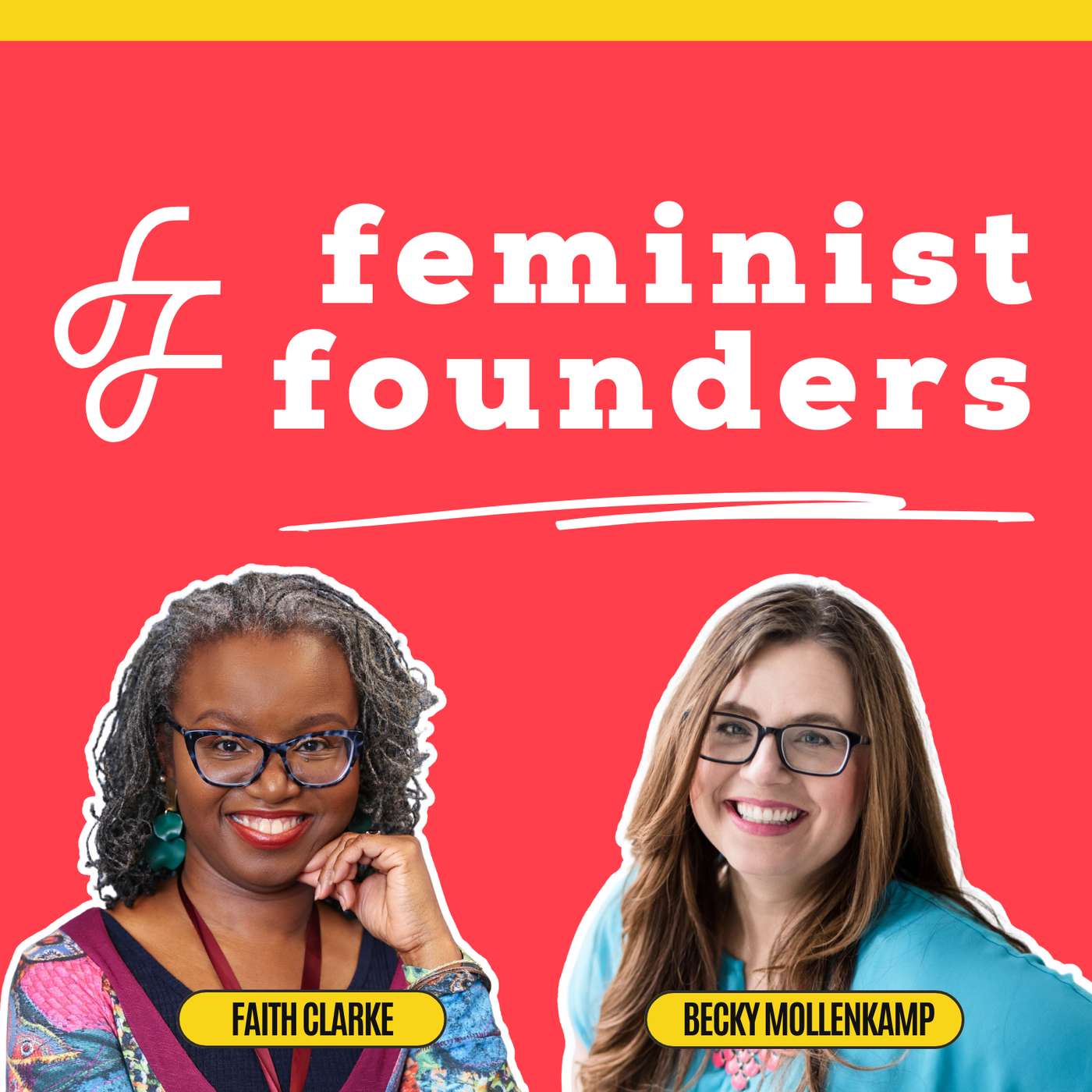
Feminist Founders: Building Profitable People-First Businesses
Becky Mollenkamp
Women Making Moves
Amy Pons
Queer News
E3 Radio
Nonprofit Mission: Impact
Carol Hamilton
Small But Mighty Agency: How to Grow Your Agency
Audrey Joy Kwan | Growth Strategist for Agencies
Disrupt Your Money
Meg K. Wheeler
Small Business Casual
Emily Aborn
Not Too Productive
Becca Rich
Messy Liberation: Feminist Conversations about Politics and Pop Culture
Becky Mollenkamp and Taina Brown
Empowered & Embodied Show
Kim Romain & Louise Neil
The Air We Breathe: Finding Well-Being That Works for You
Heather Sayers Lehman, MS, NBC-HWC, NASM-CPT, CSCS, CIEC, CWP
Careers at the End of the World: Reimagining Ambition, Work, and Your Job Search in Unprecedented Times
Jenn Walker Wall | Work Wonders Careers
The Passionistas Project Podcast | Motivational Stories of Passionate Women
Amy & Nancy Harrington | Women Inspiring Women
Humaning: The Shit We Need to Talk About
Steff Gallante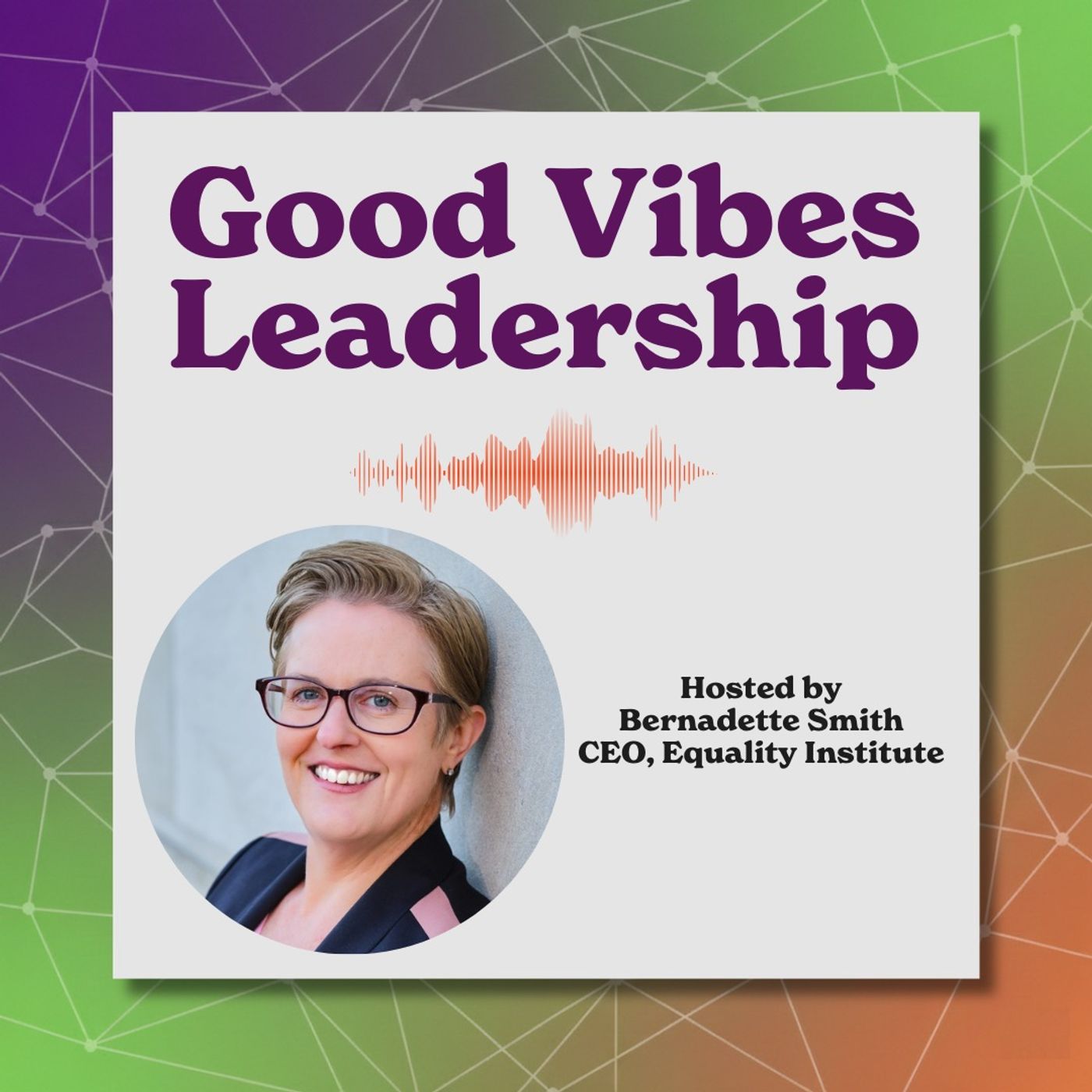
Good Vibes Leadership with Bernadette Smith
Bernadette Smith
The Art Of Imperfect Adulting
Amy Stone
Business as UNusual
BiCurean Consulting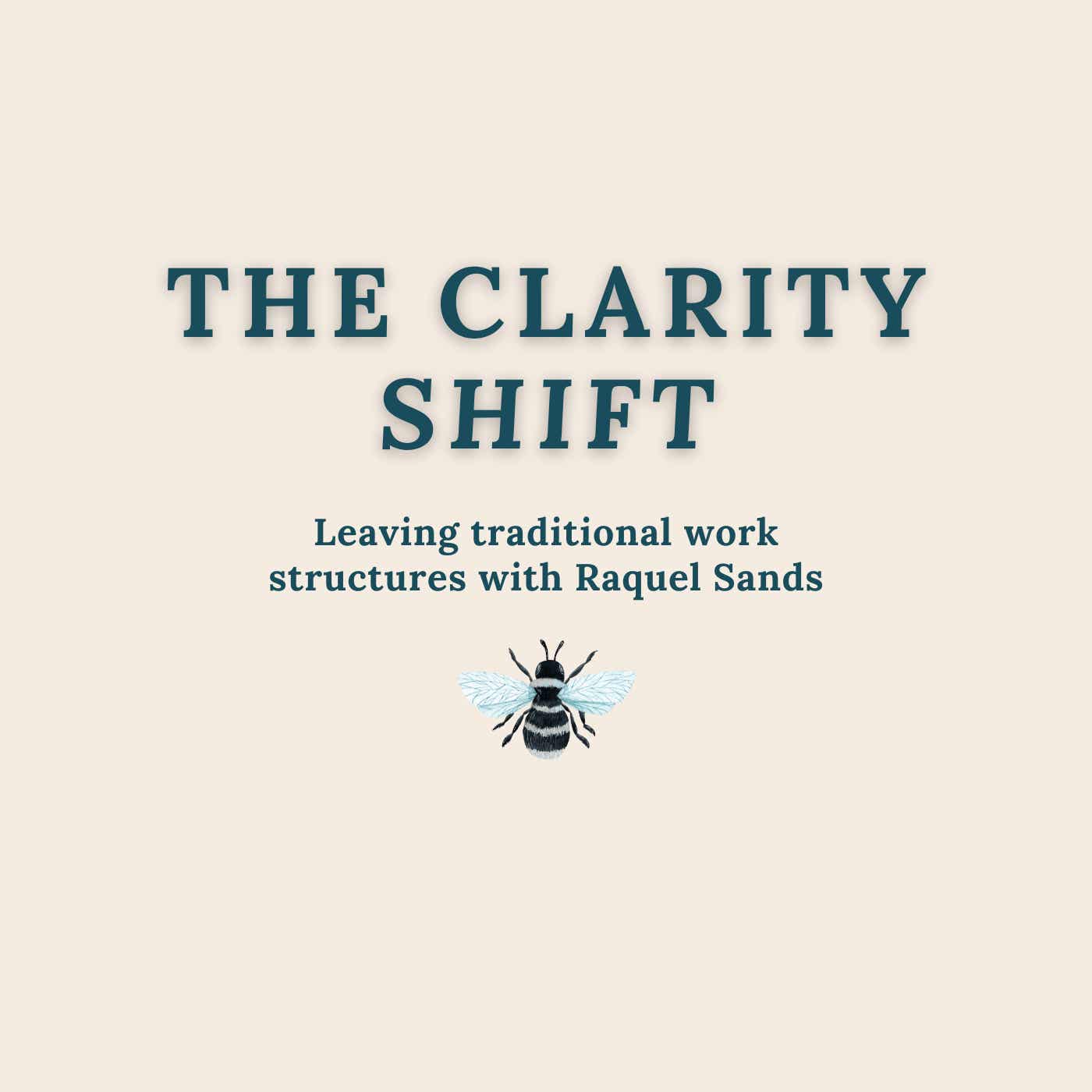
The Clarity Shift
Miriam Raquel Sands | Clarity + Alignment
Cozy Conversations with The Sister Project
Lauren Massarella and Michelle Anderson
Departure Menopause: Neurodivergent-Affirming & Weight-Inclusive Care
Melinda Staehling
The Empress and The Fool
Sarah Dittmore & Kaitlyn Gulock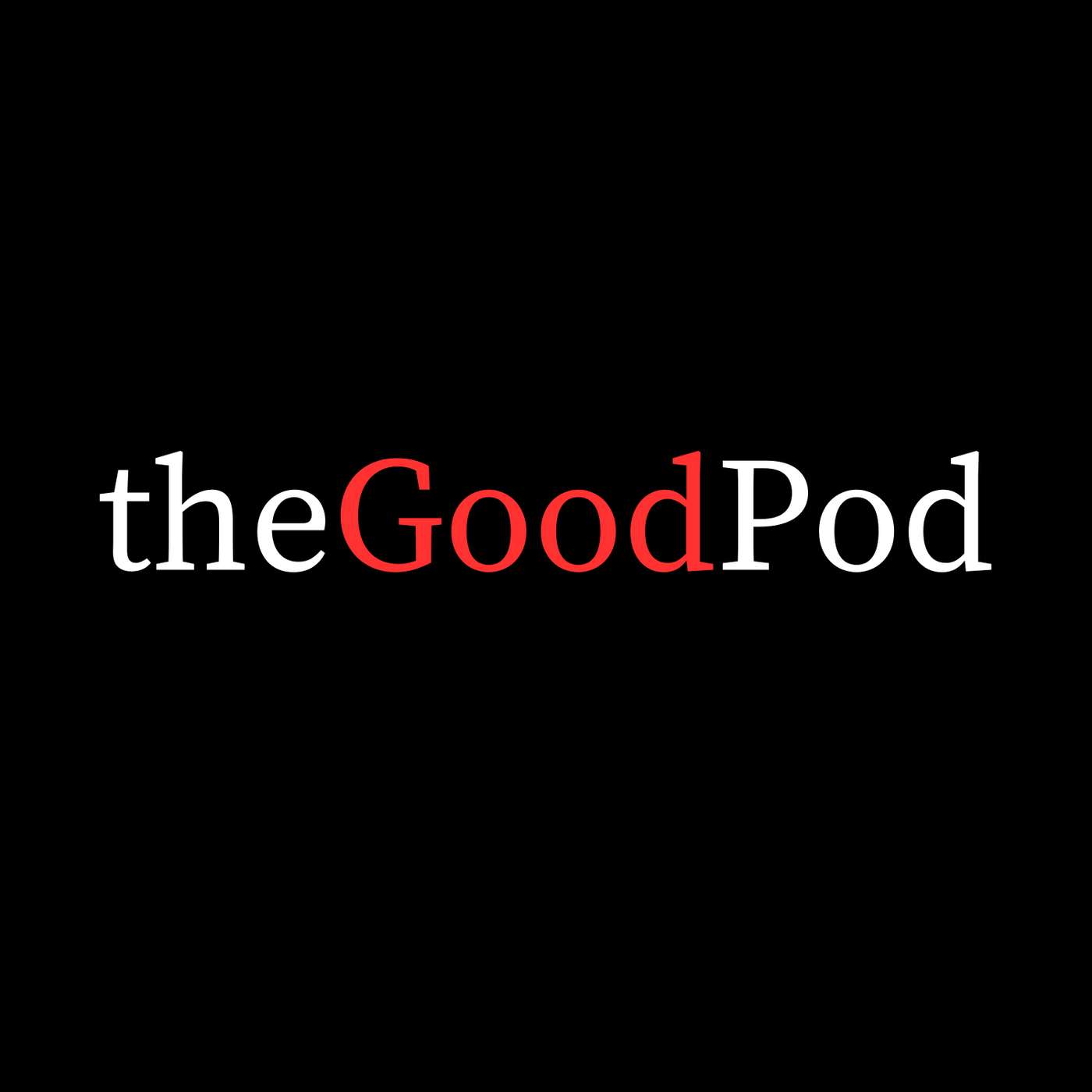
The Good Pod
Jason Reed and Marissa Garza
Gratitude Geek | Business Education for Gen X Women Solopreneurs
Kandas Rodarte | Gen X Growth Coach for Women Solopreneurs
Mental Health Warrior & Neurodivergent Advocate
Amy D. Taylor | Mental Health Warrior & Neurodivergent Advocate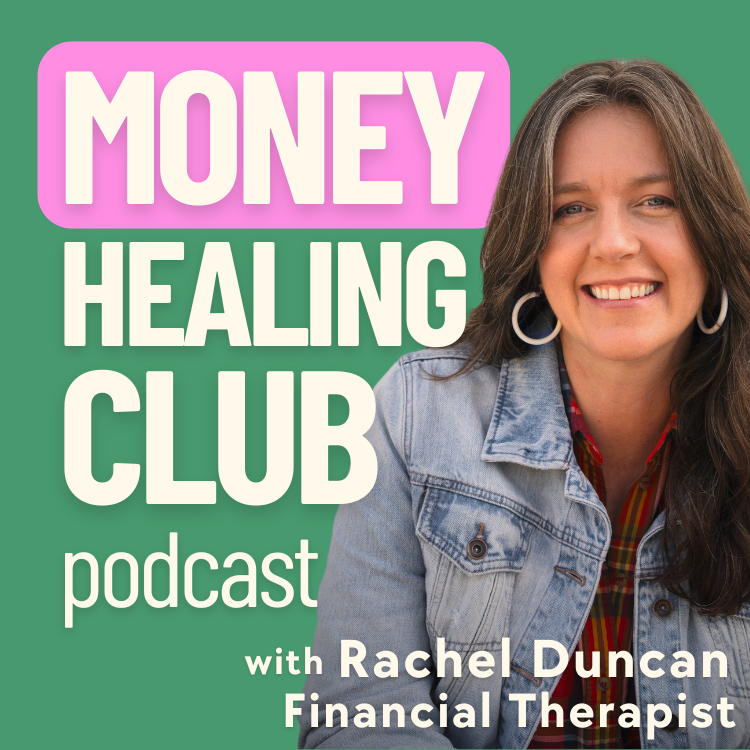
Money Healing Club Podcast
Rachel Duncan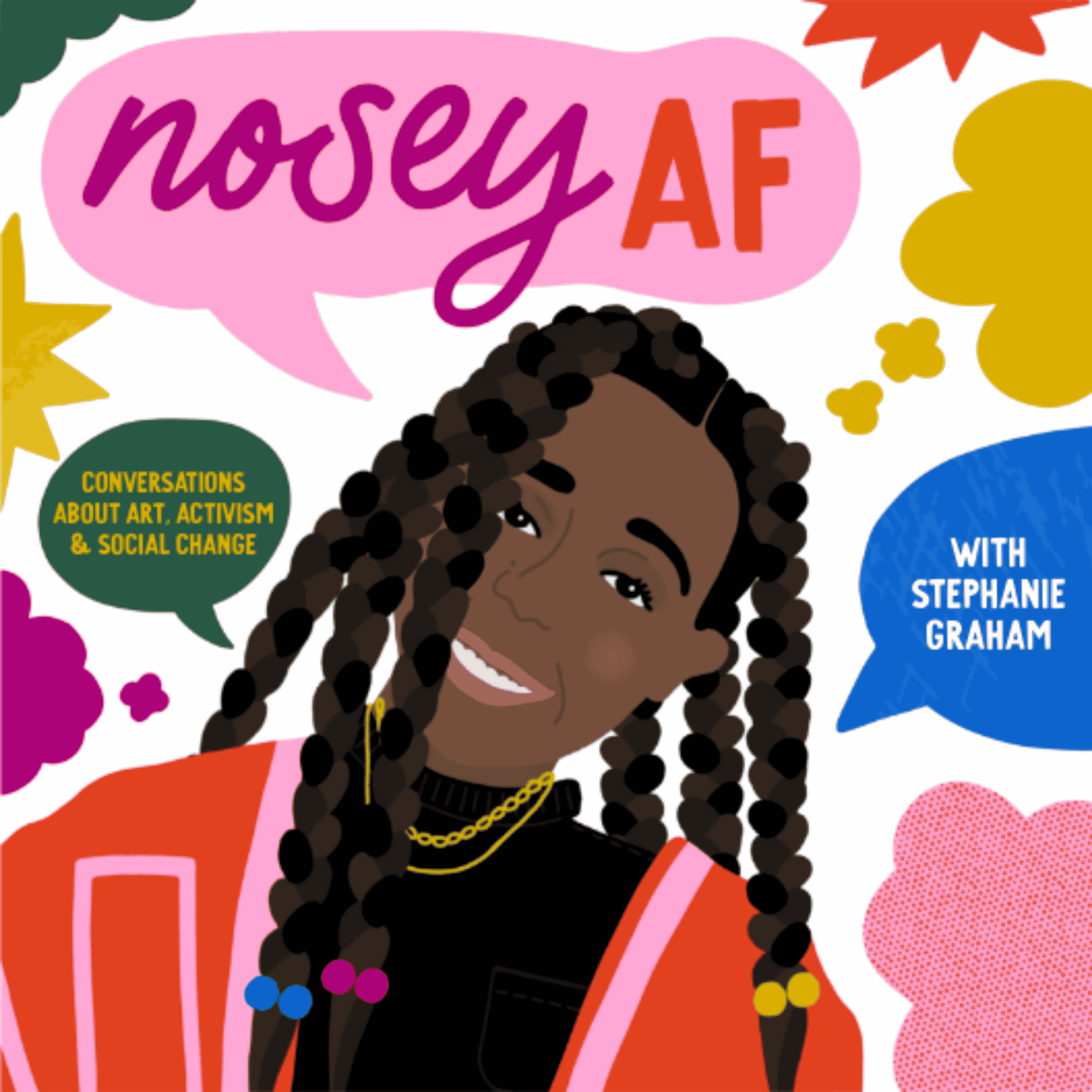
noseyAF: Conversations about Art, Activism, and Social Change
Stephanie Graham
The RestLab with Jordan Maney
Jordan A. Maney
Was It Chance?
Alan Seales, Heather Vickery & Broadway Podcast Network
White Homework
Tori Williams Douglass, Benjamin Faye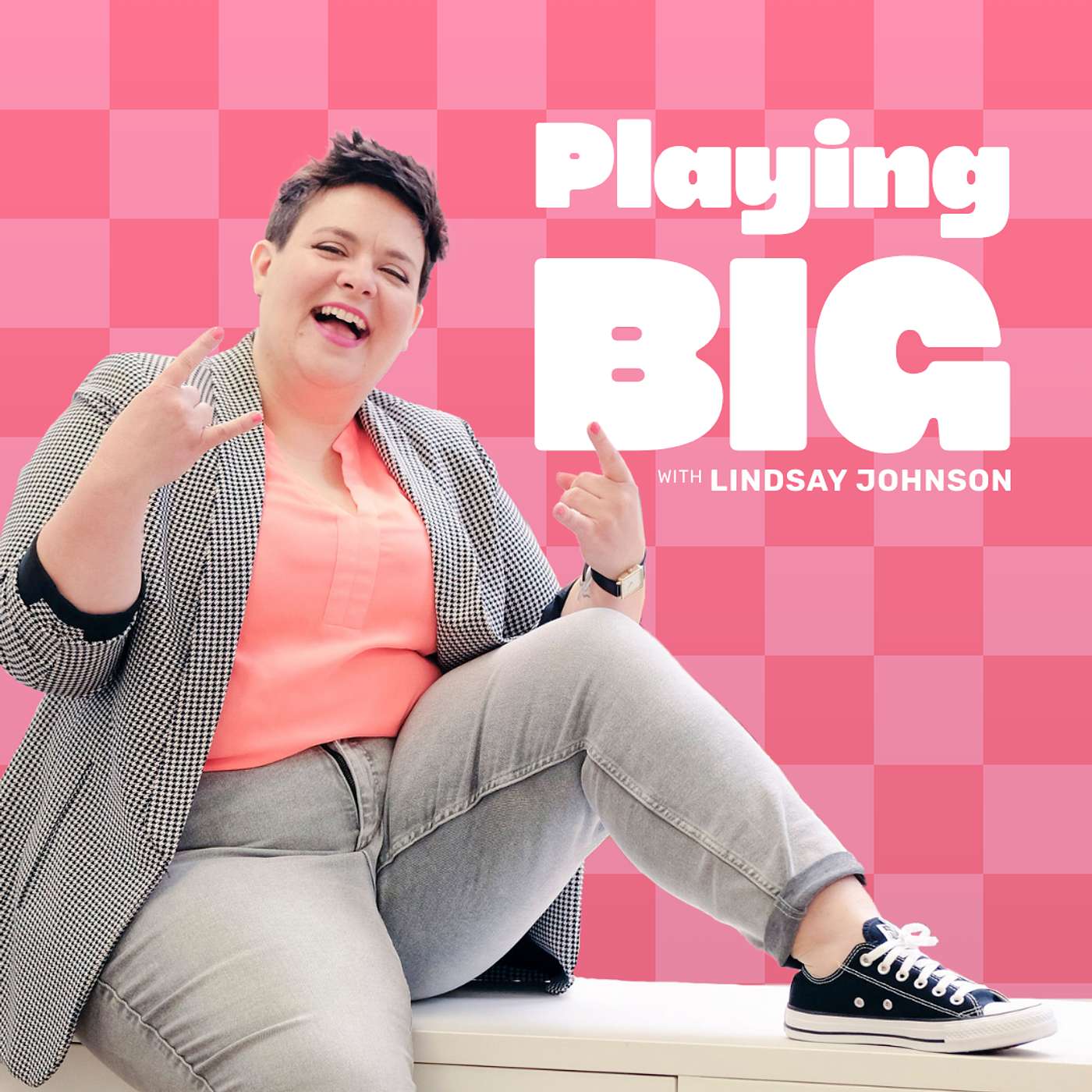
Playing Big with Lindsay Johnson
Lindsay Johnson, The Radical Connector



